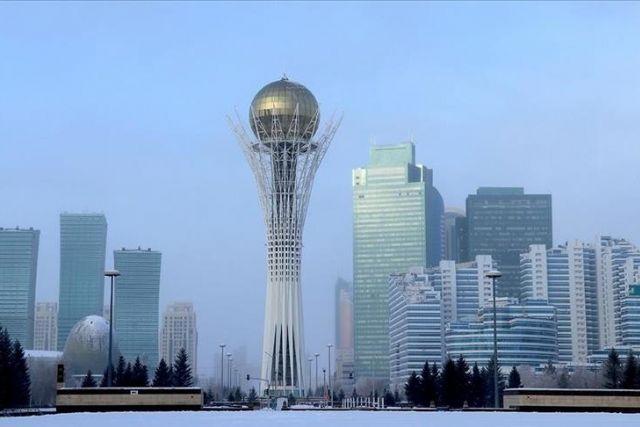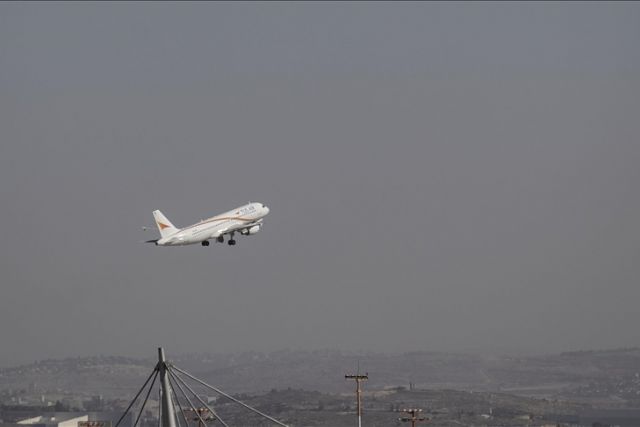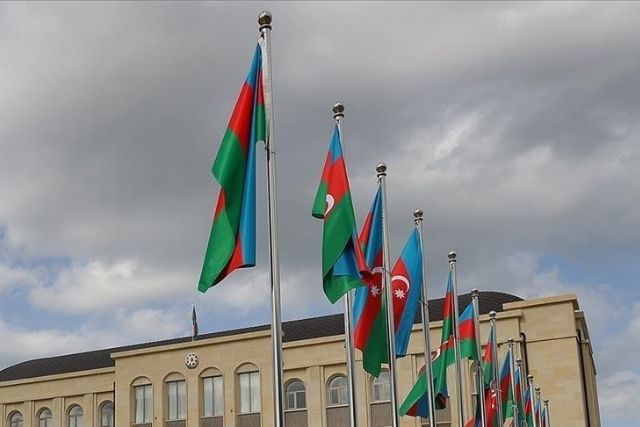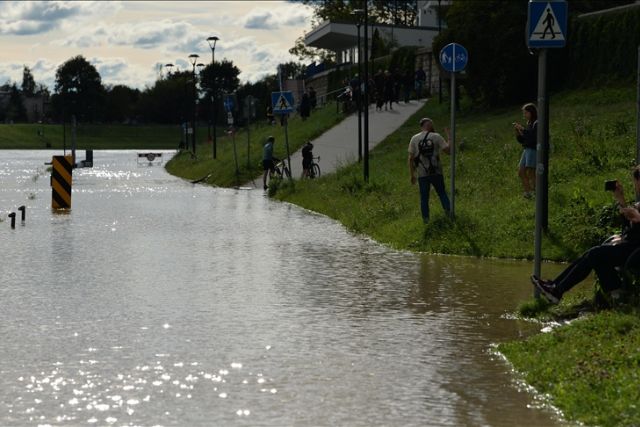ANALYSIS - Kazakhstan turning energy hub for China, Europe
Central Asian country Kazakhstan holds positive forecast for 2022, expecting economic recovery, energy linkages with Russia, China, and Europe

- The writer is a UK-based analyst and has worked with universities in three Central Asian countries.
LONDON
The Central Asian country of Kazakhstan is becoming a major energy destination for China and the West, keeping in view their growing demand for oil and gas in near future.
At the recently held summit-level meeting between Kazakhstan Prime Minister Askar Mamin and his Russian counterpart Mikhail Mishustin, both countries signed a Memorandum of Understanding to pursue construction of energy corridors to China and Europe and to establish production and sales infrastructure to facilitate selling compressed natural gas (CNG).
Both countries are also jointly pursuing the prospects for the construction of high-speed highways, as a new vector of development to bring technological innovation and economic development to the regions connecting Europe with China.
Analysts believe that this transport route will not only facilitate increased export flows, improve transport logistics, but also make a huge contribution to the development of the economies of the participating countries.
The Europe-Western China-Russia-Kazakhstan transport corridor will link the ports of Finland through the Baltic countries, via Kazan and Orenburg (in Russia) and Kazakhstan to Western China.
The energy ministries of Russia and Kazakhstan aspire to promote the gas vehicle fuel market and create a network of gas-filling infrastructure on international routes over the coming years.
Hence, Russian Energy Minister Nikolai Shulginov and his Kazakh counterpart Magzum Mirzagaliyev signed a memorandum of understanding in the field of infrastructure development for the use of natural gas as fuel on the Europe-Western China international transport route.
Joint action plan
A joint action plan was signed to develop the road infrastructure of the Europe-Western China route and the Meridian highway as well. The signing of the document was attended by the Russian Deputy Transport Minister Andrei Kostyuk and Kazakhstan Deputy Minister for Industry and Infrastructure Berik Kamaliev.
The Europe-Western China transport corridor will allow locations along the route to be linked to transcontinental transportation and earn revenues from the transit traffic passing through their communication arteries. Transport will gain a priority for the economy as the share of transport services in the gross domestic product, may attract revenues and investments in the development of other economic sectors too.
With a low domestic demand at present in Kazakhstan, many hopes are pinned on the construction of the Europe-Western China route to transport energy to international markets. According to Talgat Arystanbaev, Chairman, Natural Gas Vehicles Association Kazakhstan, the move will lead to building 100 CNG (compressed natural gas) and LNG (liquified natural gas) stations all over the country.
Currently, China has 24% stakes in oil production and 13% stakes in gas production in Kazakhstan.
Observers believe that Kazakhstan along with Turkmenistan will remain an important partner for energy exports to China in the future. Moreover, China has fast-paced building five dams in the Almaty region to produce 480 MW of electricity. It will be the largest Chinese-owned hydropower project in Central Asia.
The Kazakh authorities are also in talks with the Russian Atomic corporation Rosatom for the possible construction of a nuclear power plant (NPP), says Kairat Kelimbetov, the chairman of Kazakhstan Agency for Strategic Planning and Reforms.
Optimism in Kazakhstan
Kelimbetov said that the step was necessitated because of commitments to lower carbon emissions not only by moving away from coal but making a transition to a new economic model for generating electric power.
Officials in Kazakhstan say that their optimism stems from the “favorable price conditions” in the world markets that they believe will help increase the revenue from the export of metals and products made from them.
The Organization of Petroleum Exporting Countries (OPEC) has set a quota of 1.5 million barrels of oil production per day for Kazakhstan in December 2021 an increase of 16,000 barrels. The Eurasian Development Bank (EDB) analysts expect oil production at the Tengiz field to increase in 2023, which will help Kazakhstan's GDP to grow up to 5% in 2023.
*Opinions expressed in this article are the author's own and do not necessarily reflect the editorial policy of the Anadolu Agency.





